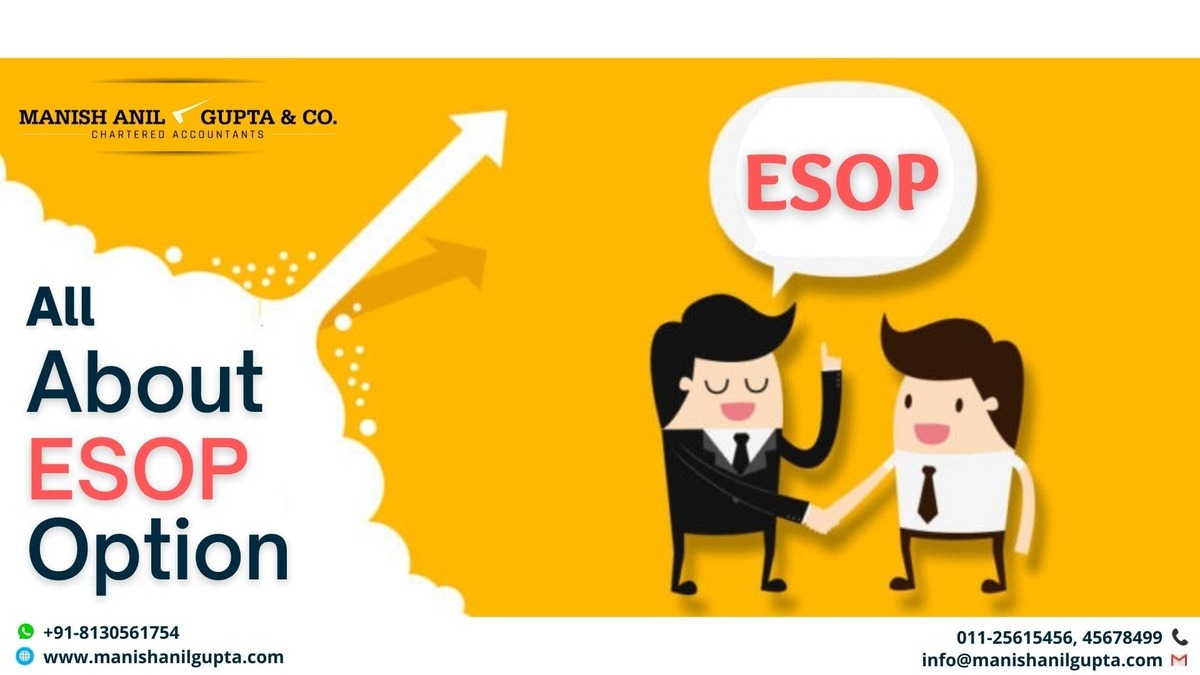Employee Stocks Option Plan (
ESOP) is an option to purchase the employer company’s stock/equity at a
predetermined price (mostly below its overall market value at the time of grant) given to the employee by the employer company. The employee who agrees for ESOP scheme can exercise the actual purchase of Employer Company’s stock/equity on fulfilment of
certain conditions like completion of tenure of service defined in several years or a company’s revenue target, etc. On realization of the conditions proposed (vesting) placed by the employer company, the ESOP is vested with the employees.
The difference between the grant price to employees and the share’s market price is referred to as “
discount” from the employer company perspective. Interestingly, the recent judgment pronounced by the Hon’ble
High Court of Karnataka in the case of the
Commissioner of Income Tax, LTU v. Biocon Ltd. concerning tax allowability of the discount on ESOP as recorded in the books of accounts of the company. On
11-11-20, High Court held that
the deduction of discount on ESOP as per books of accounts is an admissible tax allowance in the employer company’s business income computation. The legal principle emphasized by the HC is that
the discount on issue of ESOP is not a contingent liability but an ascertained liability. It was held that the difference between the grant price to employees and market price of the shares (discount), as on the date of the grant, is an expenditure incurred for getting prolonged service of the business employees services, it is an
allowable business expenditure under
Section 37(1) of the Income Tax Act, 1961. The company’s discount was not short receipt of capital but an item of expenditure for securing the employee’s consistent services to earn the requisite business profits. The HC reiterated that it is settled law that if a business liability has arisen in the accounting year, the same is permissible as a deduction, even though, liability may have to be quantified and discharged on a future date. On exercise of an employee’s option, determining the actual amount of benefit is the only quantification of liability, which takes place at a future date. Further in cases, where ESOP vests over several years (like four years), then, it implies that employee has a definite right to proportionate (for, e.g., 25%) of the shares at the end of the first year and accordingly, the employer (taxpayer) is bound to allow vesting of 25% of the options and same becomes permissible business expenditure to that extent in that year.
At the time of exercise of option by employees, the difference between the fair market value at that time and the exercise price is
taxable as “
Perquisite”
in the hands of the employees and the employer is required to deduct TDS, although the employees receive no cash flows on account of exercising ESOP.
Further, when the employees dispose off the shares, they will attract
tax under Capital Gains (either long or short-term, depending on the holding period).
From an accounting perspective,
ICAI has issued a
Guidance Note for accounting for share-based payments in September’20 for the enterprises who are not required to follow Indian Accounting Standards (IndAS). It provides that in case of employee share-based payment plan administered through a
Trust, the enterprise’s standalone financial statements should portray the picture as if the enterprise itself is administering the ESOP Scheme. This has
two results viz., (i) the enterprise should recognize any expense arising from the employee share-based payment plans, and (ii) the operations of ESOP trust are included in standalone financial statements of the enterprise insofar as the ESOP is concerned. In such a situation, in the enterprise’s standalone financial statements,
Loans to ESOP Trust will not appear at all after making necessary adjustment entries. This would align with the tax treatment of the
expenses allowable u/s 37.
Overall, it is concluded that the ESOP is mutually beneficial to the employer and the employees. On the one hand, the employer can retain a talented workforce, save cash flows, increase productivity and achieve enhanced profitability. This enhanced profitability further results in increased market value and intrinsic value of the employer company’s shares. On the other hand, the employee is motivated to put in best efforts as the employee benefits if the company benefits, leading to a win-win situation.


0 Comment